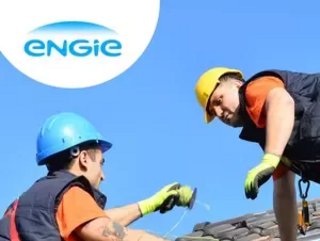ENGIE Impact surveys 500 leaders on sustainability

ENGIE Impact, a sustainability solution provider and subsidiary of the French behemoth ENGIE, has released its annual net zero report, entitled “Six Actions to Accelerate Decarbonization.”
The third iteration of this report, it spells out a number of developments in the world of sustainability, including corporate transformation readiness, the challenges inherent in implementation, and decarbonisation roadblocks. It also offers solutions for those companies that hope to pick up the pace on these efforts.
The report involved the participation of over 500 senior executives from the largest companies in the world (every one of them can boast more than 10,000 employees).
The facts speak
Among the facts highlighted are the following: 62% of the subjects claim to have made a public commitment of some form to address emission reduction. Despite this relatively high number, only 12% of companies would qualify their efforts as “extremely successful,” with 75% saying they have experienced the “quick wins.”
Elsewhere, 73% of respondents claimed that “the pressure to deliver short -term return on investment” was a barrier to sustainable progress, while, at the same time, 69% say that “having superior sustainability capabilities will drive their competitive advantage.”
To see more progress, leaders insist that more investment and a sustained effort to decarbonise will be necessary.
Said ENGIE Impact CEO Mathias Lelievre: “Our research reveals signs of progress from corporations around the world, but the process must accelerate, and we’ve learned there are challenges along the way that many leaders don’t anticipate at the beginning of this journey
“Our report identifies the most common barriers to overcome and strategic actions to clear those roadblocks and accelerate decarbonisation.”
ENGIE Impact issues this report from a place of authority and success: over the last six years, the company has saved its clients nearly $1bn in reduced energy usage and reduced greenhouse gas emissions at a rate equivalent to 900,000 passenger vehicles a year.






